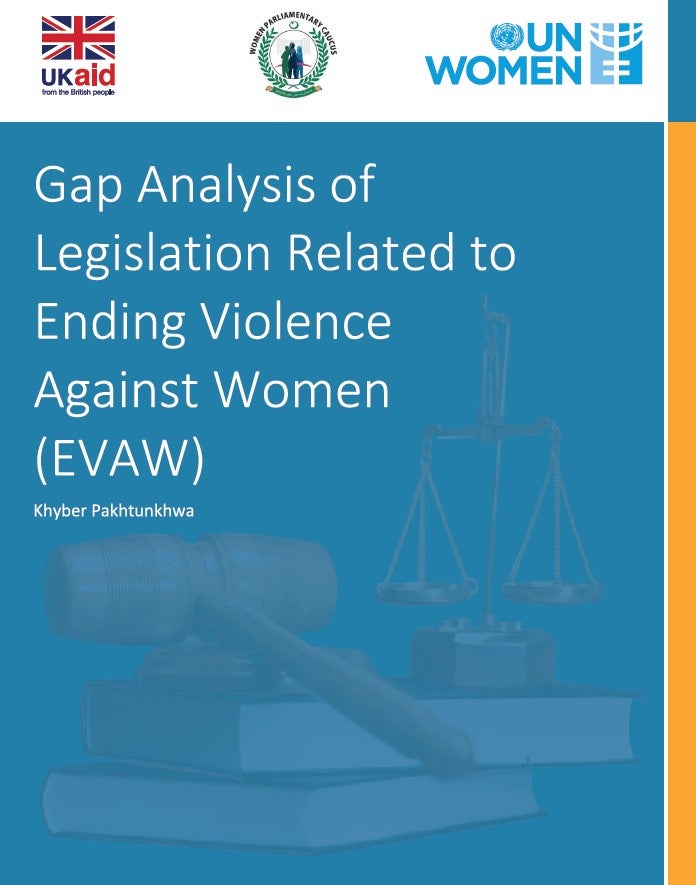
Gap Analysis of Legislation Related to Ending Violence Against Women (EVAW)

This series of reports documents lacunas in the existing legal framework and implementation process in Pakistan’s Federal and Provincial laws related to EVAW. The thorough analysis that underpins these critically reflective documents also subsumes the perspectives of the Federal and Provincial public functionaries and stakeholders. It premises on an in-depth legal review followed by Technical Consultative Workshops and participatory brainstorming sessions to ensure full participation of a diverse range of stakeholders; hence it reflects the ground realities.
Contextualizing EVAW laws within the international law framework of CEDAW and SDG Goal 5 has been the starting point for this work. By elaborating upon the Concluding Observations of UN Committees, the Gap Analysis provides an indication of the progress made in harmonizing domestic laws with international rights framework. Important milestones in this regard include the promulgation by the Federal Parliament of the Prevention of Trafficking in Persons Act 2018 and Hindu Marriage Act 2017; deterrence against forced disenfranchisement of women during elections in the Election Act 2017; provincial legislation for autonomous Commissions on the Status of Women; and the landmark judgement of the Supreme Court in National Commission on the Status of Women and Others Versus Government of Pakistan declaring jirgas to be unconstitutional.